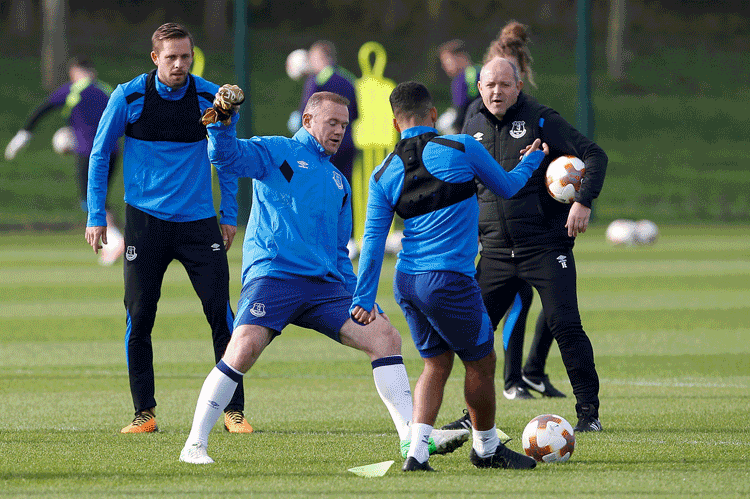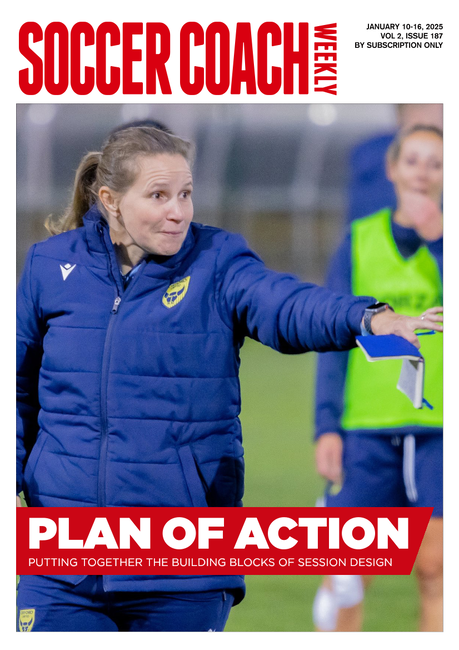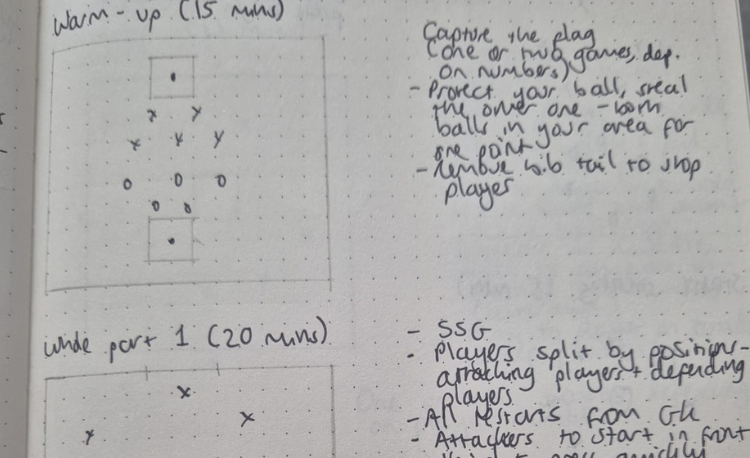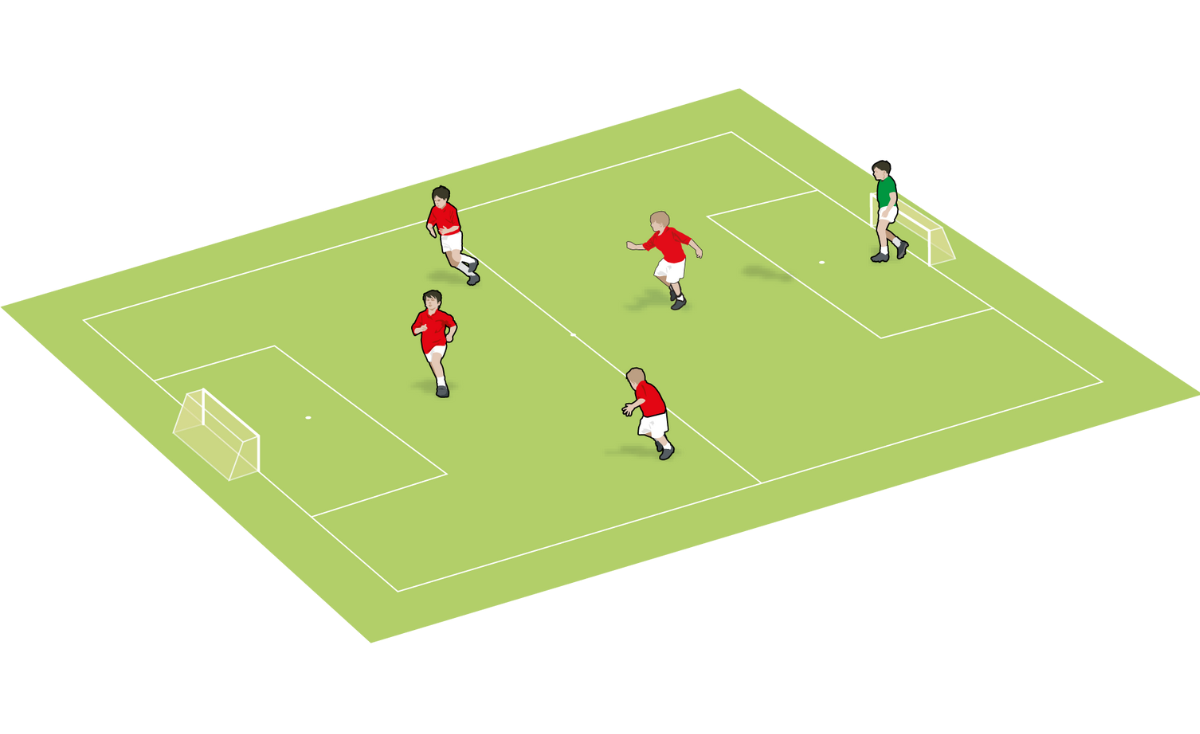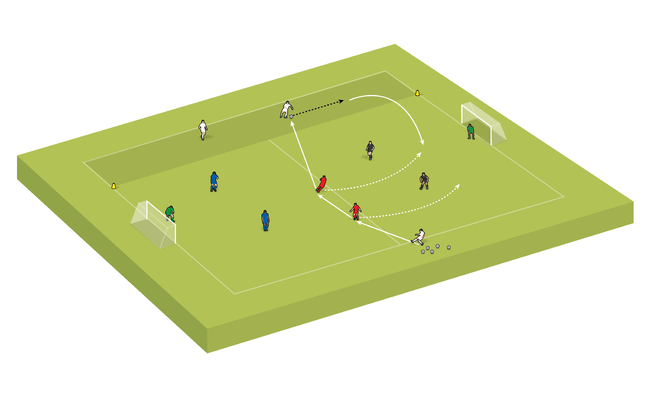10 player tips for small-sided games
Coaching Adviceby Dave Clarke
Smaller sides games such as 4v4 or 5v5 helps keep all players on the field involved and moving. Players are able to gain confidence which in turn increases their touches on the ball. They are great fun for players and coaches alike.
Smaller sides games such as 4v4 or 5v5 helps keep all players on the field involved and moving. Players are able to gain confidence which in turn increases their touches on the ball. They are great fun for players and coaches alike.
Wayne Rooney (above) started playing at an early age on a five-a-side pitch: "At the back of my house there was a small five-a-side pitch that belonged to the local youth club. I’d only have to climb over my garden fence and there I was. There were other places too, we’d find a pitch in most spots but it was that pitch behind my house that me and my mates would play on for hours."
1. Move the ball constantly
Keep the ball moving at all times. With lots of quick passing and moving you can get the opposition out of position. This should give you a chance to score.
2. Use restarts for a coaching point
Restarts in small sided games should lead to the learning point. For example, if your challenge is getting better at defending corner kicks, the rules of your SSG should include when the ball goes out of play the game is always restarted with a corner kick. This way the challenge and possible solutions are repeated many times in quick succession, giving your players a great opportunity to learn and improve.
3. Always ask questions and avoid statements
This is a great way to make sure your players aren’t tuning you out. By asking them questions they have to come up with the answers instead of passively waiting for answers to be given to them. This way the answers stick.
4. Counter-attack
When you have a lead, it’s really important to keep the ball. If you do lose it, you have to let the opposition come to you, then aim to nick it back and hit them on the break.
5. Stay calm
It’s really important to keep your discipline and stay composed in high-stakes matches. Don’t let the opposition wind you up.
6. Share the goals
It’s vital that all members of the team can chip in with goals – not just your attacking players. This is because, when games are close, most opponents will try and mark your striker out of the game. Having someone at the back who can chip in with goals is really handy.
7. Respect the ref
Moaning to the referee gets you nowhere. If anything, it can hinder you in the long run.
8. Defend as a team
Defend from the front as a team. Your front man should mark their defender to make it hard for them to get out. This puts pressure on the opposition at the right end of the pitch.
9. Make sure your goalie is a ‘talker’
You need good communication because the game is so fast-paced. Your keeper needs to continuously provide you with information on what's happening.
10. Shoot for the corners
Aim for the corners, or wait for the keeper to dive first – in five-a-side a lot of keepers go early.
Newsletter Sign Up
Coaches Testimonials

Gerald Kearney, Downtown Las Vegas Soccer Club

Paul Butler, Florida, USA

Rick Shields, Springboro, USA

Tony Green, Pierrefonds Titans, Quebec, Canada
Subscribe Today
Discover the simple way to become a more effective, more successful soccer coach
In a recent survey 89% of subscribers said Soccer Coach Weekly makes them more confident, 91% said Soccer Coach Weekly makes them a more effective coach and 93% said Soccer Coach Weekly makes them more inspired.
*includes 3 coaching manuals
Get Weekly Inspiration
All the latest techniques and approaches
Soccer Coach Weekly offers proven and easy to use soccer drills, coaching sessions, practice plans, small-sided games, warm-ups, training tips and advice.
We've been at the cutting edge of soccer coaching since we launched in 2007, creating resources for the grassroots youth coach, following best practice from around the world and insights from the professional game.
